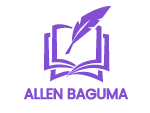Summary
At COP28, Mzee Mashurubu reveals a unique perspective—Sepoo, an indigenous delegate, claims Umlimo’s approval for the Grande Inga Dam, a salvation effort for Earth’s endangered lung, the Congo Forest. Dr. Luganzu, CEO of Afrika Okapi, shares a USD 97 BN blueprint for the dam, generating 87 GW of hydroelectricity. The project by Hughes Harness Systems aims to power all of Africa and export surplus to Europe. Seeking COP28 leaders’ commitment, Dr. Luganzu envisions Africa uniting for global sustainability. A divine obligation fulfilled, Africa plays a pivotal role in Mother Earth’s rescue.
“Sepoo’s message from the depths of Ituri: ‘The Congo Forest is Earth’s last lung, and the Grande Inga Dam is its breath of life.'”
‘This guy here is a hot cake…he is sought after by everyone,…he speaks through a chain of interpreters, who have to decode messages in various languages from his primary interpreter…he has interesting theories about the climate change question…’
The latest update from Mzee Mashurubu, attending COP28 in a delegation of private sector executives from East Africa, is a mixture of intriguing and interesting developments. Notable among these is the story of Sepoo, a Mumbuti from Ituri. One of the ‘indigenous’ people delegates, Sepoo, is accompanied by Dr Benoit Luganzu, an Australian-trained renewable energy engineer, himself a native of Ituri Province. He is the interpreter for Sepoo.
Sepoo holds that Umlimo, the custodian of the divine mysteries across the vast Congo biodiversity basin, has finally permitted the construction of the Grande Inga Dam on River Congo. Congolese lore has it that the Bakongo Kingdom (present-day DR Congo, Congo-Brazzaville, Zambia and Angola) holds the world’s blessings, bounties and resources from God, under the custody of Umlimo, who regulates their exploitation.
“Sepoo’s message from the depths of Ituri: ‘The Congo Forest is Earth’s last lung, and the Grande Inga Dam is its breath of life.'”
The Congo Forest is the righthand side of the two lungs of Mother Earth. It is the only one functioning, since the left hand-side lung, the Amazon, is already injured. She thus breathes with one lung. And it is under threat of over-exploitation, the reason Umlimo has permitted the Inga Dam project to save Mother Earth and her children.
Sepoo and Dr Luganzu are therefore attending COP28 on a dual mission: relaying the divine message and presenting the investment blueprint, respectively. Dr Luganzu is the CEO of Afrika Okapi, the company behind the Inga Dam project. It is a subsidiary of Australian renewable energy and sustainable forest harvesting giant Hughes Harness Systems Ltd. Okapi is that mystic animal in the Congo Forest, believed to be a cross between a horse and a zebra.
Hughes Harness Systems is reputed globally for its sustainable harvesting philosophy and practices, when it comes to mineral and forest resources. It is said that its founder, Mark Hughes, was an anthropologist who studied the resource management beliefs and practices of the Aborigines and adapted them into his corporate culture and business model.
In DRC, the company harvests timber, palm oil, alluvial and subterranean minerals, wild honey, and medicinal herbs. Its mode of natural resource harvesting has found acceptability not only with the Kinshasa government but also among citizens who live in the mineral and forest rich areas, including the Bambuti, the custodians of the pristine forests in this region.
When fully completed and running, the Grande Inga will generate 87 GW (gigawatts) of clean, hydroelectricity, far above the 50 GW estimated previously. The harnessing of an addition 37 GW is possible due to the advancement in the generation technology to be deployed. This power is enough to light up the entire African continent, with a surplus to export to southern Europe. The interesting bit is that despite the increase in the power generated, the transmission costs have not significantly escalated, thanks to the local production of the aluminium cables for overhead transmission across the substations in the recipient countries.
‘Africa is resource-blessed, not cursed, as has been erroneously imprinted into some people’s psyche. COP28 is the turning point, not only for Africa but for the entire humanity’ asserts Dr Luganzu. His blueprint for the investment has USD 97 BN as the seed capital for all the seven barrages of the Grande Inga system. He is seeking a firm commitment from the leaders at COP28, into investing in harnessing this clean energy.
“COP28 marks a turning point; Africa rises with a USD 97 BN blueprint—Grande Inga, a beacon of clean energy, lighting the way to a greener future.”
And from his blueprint, unlike the Standard Gauge Railways (SGR) arrangement where each country has to build her own section, the Inga power transmission network will be under Afrika Okapi, across all African countries, feeding into the existing national grid in each country. What Afrika Okapi will do is build substations at strategic locations, as the ‘arrival’ point for Inga power. The respective national power companies will tap from here into their national grid for inside transmission and distribution. Europe will tap from Morocco into Spain.
‘Africa, the cradle of humanity, is fulfilling her divine obligation of saving Mother Earth, Mzee Mashurubu chuckles in his voice message from Dubai.
#COP28 #GrandeIngaDam #SustainableEnergy
Photo credit: https://images.app.goo.gl/uDx8BcAagbJaHF6z5


Nkusi Alphonse
Great to be aware we still blessed